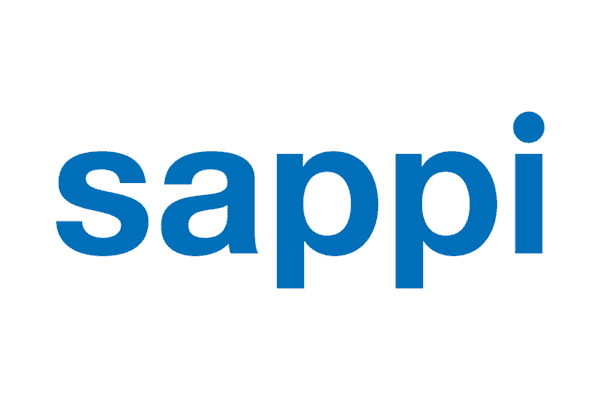Sappi announces results for the third financial quarter 2024
Financial summary for the quarter
EBITDA excluding special items, up over 40% to US$151 million (Q3 FY23 US$106 million)
Profit for the period is up over 25% to US$51 million (Q3 FY23 US$40 million)
EPS excluding special items is up by 4c to 9 US cents (Q3 FY23 5 US cents)
Net debt of US$1,340 million (Q3 FY23 US$1,176 million)
Commenting on the group’s results, Sappi Chief Executive Officer Steve Binnie said: “I am pleased the group delivered EBITDA (earnings) more than 40% above the prior year at US$151 million. Despite the third quarter being a seasonally slower period for our business, and the sluggish global economy, our results were in line with our guidance. Underlying profitability, excluding a $30 million impact from scheduled maintenance shuts at Saiccor and Somerset Mills, remained steady quarter-on-quarter. This is a pleasing performance driven by sustained strong market conditions in the pulp segment, offset somewhat by a muted recovery in paper markets.”
Globally consumer sentiment showed signs of improvement as inflation continued to subside, which provided a boost for packaging and textile markets. However, graphic paper demand remained generally subdued, with the post-destocking cycle recovery of 2023 slowing during the quarter.
Market conditions for dissolving pulp (DP) continued to be favourable, supported by tight supply and strong demand, which was enhanced by high downstream viscose staple fibre (VSF) operating rates and low inventory levels. The hardwood DP spot market price was stable during the quarter rising by US$2/ton to end the quarter at US$942/ton. DP sales volumes and USD pricing were roughly in line with the prior year and quarter.
Graphic papers sales volumes increased by 13%, a substantial year-on-year improvement in profitability for the segment compared to the weak performance seen last year. However, the gradual market recovery following the destocking cycle of last year slowed during the quarter as underlying demand continues to be suppressed by global macroeconomic challenges and a likely shift in consumer behaviour following the Covid-19 pandemic. Escalating costs also impacted margins compared to the prior quarter.
The packaging and speciality papers segment experienced a challenging quarter. Paperboard demand in North America rebounded, but selling prices came under pressure, while the region was further negatively impacted by the scheduled Somerset Mill maintenance shut. European demand also improved, albeit off a low base. Market sentiment showed modest signs of recovery, particularly in the label and self-adhesive categories. Containerboard demand in South Africa was negatively impacted by a weaker than forecast citrus fruit season due to adverse weather events. Despite these headwinds, sales volumes were 22% above last year and improved by 10% quarter-on-quarter. The positive sales volumes momentum was, however, offset by rising costs and declining prices which negatively impacted the profitability of the segment.
The sale of the Stockstadt Mill site for US$49 million was concluded during the quarter and ownership transferred to the Progroup. Shortly after the quarter-end Sappi announced the sale of the Lanaken Mill to UTB Waalwijk B.V., a privately owned Dutch company specialising in industrial property conversions. In terms of the agreement UTB will acquire all the shares in Sappi Lanaken N.V. including all its assets, for a value of €50 million, of which €40 million will be paid in cash. The transaction is unconditional and expected to close during October 2024.
Outlook
Dissolving pulp market conditions remain robust as low downstream viscose staple fibre inventories and a constrained DP supply landscape continue to offer support for DP prices. Both VSF and DP prices have risen in recent weeks driven by an earlier than usual upsurge in seasonal activity in the textile value chain, and concerns around logistical challenges. Cotton pricing, which is generally more volatile than VSF and polyester pricing, has dropped in recent weeks from previously relatively high levels. The VSF discount to cotton nevertheless remains healthy, which should support continued demand.
Graphic papers markets remain suppressed, particularly in Europe. The fourth quarter is seasonally stronger, and we anticipate some recovery in demand for graphic papers through the quarter. Market conditions for packaging and speciality papers in North America and South Africa are steadily improving, but recovery in Europe continues to lag. Margin management remains our primary focus for the paper businesses to mitigate the impact of rising costs.
Logistical challenges are driving up global shipping costs, which is expected to negatively impact delivery expenses. Additionally, variable costs, particularly chemical costs, are anticipated to increase as suppliers seek to pass on the higher logistics costs. Paper pulp prices appear to have peaked and are expected to begin reducing in the coming months.
However, there is typically a lag in European and North American pulp markets and therefore the benefit of purchased pulp savings are only likely to be realised in the new financial year. Capital expenditure for FY2024 is expected to be slightly below previous guidance due to phasing projects, and will likely be in the region of US$480 million. This includes approximately US$154 million for the Somerset PM2 conversion and expansion project.
Market prices for hardwood timber have reduced in recent weeks, and we anticipate that the plantation fair value price adjustment for the fourth quarter will offset the majority of the gains from prior quarters.
Looking forward, Binnie stated: “Global macroeconomic conditions and consumer sentiment are slowly improving but a high level of uncertainty still exists, which is exacerbated by ongoing logistical challenges. Thanks to our very competitive dissolving pulp business, and our strategic focus on growing the packaging and speciality papers segment, Sappi remains well positioned to benefit from a global economic rebound. Notwithstanding the modest recovery in global macroeconomic conditions, and taking into consideration the impact of rising costs, we anticipate that EBITDA (excluding plantation fair value price adjustment) for the fourth quarter of FY2024 will be above that of the equivalent quarter in the prior year.”




